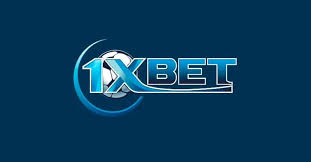
Sports betting has evolved into a sophisticated pastime and industry, blending statistical analysis, market psychology, and entertainment into a single activity. For those who want to learn more or compare providers, one option to explore is sports betting 1xbet pakistan, which illustrates how operators present markets and promotions in different regions. Understanding how the industry works and how to approach wagering with discipline can make the difference between a short-term thrill and a sustainable, enjoyable hobby.
At its core, sports betting is about assessing probability and translating that view into a wager that offers positive expected value. Markets range from simple moneylines and totals to complex proposition bets and exchange-based trading. Familiarity with common bet types is fundamental: straight bets (win/lose/draw), handicaps or point spreads, totals (over/under), parlays and accumulators, futures, and in-play (live) markets. Each format comes with different volatility, house margins, and skill requirements.
Understanding odds is the first technical challenge. Decimal, fractional, and American formats all represent the same underlying math: the relationship between stake and potential payout. More importantly, odds reflect implied probability after the bookmaker’s margin (overround) is included. Identifying when a bookmaker’s odds underestimate true probability is the essence of finding value. This requires either superior information, better modeling, or exploiting market inefficiencies.
Successful sports bettors treat betting like a business. That starts with bankroll management. Decide on a fixed bankroll dedicated solely to betting and use staking plans that limit risk. Common approaches include flat stakes (betting the same percentage each time) and the Kelly criterion (bet sizing proportional to perceived edge). Flat stakes reduce variance and emotional swings, while Kelly maximizes long-term growth but increases short-term volatility. Many experienced bettors use a fractional Kelly or hybrid approaches to balance growth and risk tolerance.
Research and data are essential. The modern bettor leverages statistics, video, injury reports, weather, travel schedules, and even market behavior to build an edge. Public data sources and advanced analytics allow creation of predictive models, but data quality and feature selection matter. For some sports, small advantages can be found by specializing in micro-markets—lower divisions, niche sports, or regional leagues—where bookmaker pricing is less efficient and fewer professional models focus attention.
Line shopping is a simple yet powerful strategy: different bookmakers offer different prices. Using multiple accounts and comparing odds ensures you capture the best return for your predictions. Likewise, understanding margins, promotions, and terms & conditions prevents surprises. Bonuses and free bets can offer value when used strategically, but always read rollover requirements and withdrawal restrictions before claiming offers.
In-play or live betting has transformed the landscape. Real-time markets let bettors react to unfolding events—injuries, tactical changes, momentum swings. This creates opportunities for traders who can interpret on-field developments faster than the market. However, live markets are fast-moving and require discipline: narrower margins, increased latency risk, and higher emotional intensity. Tools such as live stats feeds, low-latency connections, and pre-defined trading rules help manage this environment.

Psychology plays an outsized role. Cognitive biases—confirmation bias, recency bias, gambler’s fallacy, and overconfidence—can erode an edge quickly. Keeping records, reviewing bets objectively, and maintaining a long-term perspective are crucial. Many successful bettors keep detailed logs of every wager, including rationale, stake size, odds, and outcome, then periodically analyze performance by sport, market, and strategy to find strengths and weaknesses.
Technology and automation have become mainstream. From spreadsheet models to Python scripts and machine learning systems, bettors can automate data ingestion, model updating, and even bet placement via APIs. Automation reduces manual errors and emotional betting but introduces new risks: model overfitting, data drift, and technical failures. Rigorous backtesting, out-of-sample testing, and conservative deployment strategies mitigate these pitfalls.
Regulation and legal frameworks vary widely by jurisdiction, affecting market availability, taxation, and consumer protection. Licensed operators must follow rules regarding responsible gaming, fraud prevention, and financial integrity. Bettors should familiarize themselves with local laws, as well as the reputation and licensing of any operator they use. Transparency, secure payment methods, and clear dispute resolution channels are signs of a trustworthy provider.
Responsible gambling cannot be overstated. Treat betting as entertainment with a cost, not a guaranteed income stream. Set loss limits, use self-exclusion tools if needed, and avoid chasing losses. If gambling starts to interfere with finances, relationships, or mental health, seek professional help from helplines, counselors, or support organizations. Good habits and self-awareness protect both bankroll and well-being.
Bankroll aside, diversification matters. Avoid concentrating bets in one event or market. Spreading stakes across different sports, leagues, and bet types reduces variance and increases the chance that skill, not luck, determines long-term results. Similarly, adapt strategies to changing market conditions; what worked in one season or sport may not work when teams change personnel, rules evolve, or bookmakers adjust pricing mechanisms.
For beginners, starting small and focusing on learning is the safest path. Understand odds, practice with simulators or small stakes, and study successful bettors’ public strategies without blindly copying them. For more advanced participants, specialization, model refinement, and professional discipline are keys to maintaining an edge. Networking with other bettors and participating in forums or study groups can accelerate learning but beware of following tips without independent verification.
Looking forward, technology will continue to shape sports betting. Real-time data, AI-driven pricing, and enhanced mobile experiences will create both challenges and new opportunities. As markets become more efficient, the marginal edge will shrink in popular sports, pushing sharps toward niche markets, faster in-play trading, and cross-market arbitrage. At the same time, better tools democratize sophisticated analysis, enabling smaller players to compete if they apply discipline and sound methods.
In conclusion, sports betting is a complex blend of probability assessment, disciplined money management, research, and self-control. Whether you bet for fun or aim to be professional, focus on value, maintain strict bankroll rules, use technology wisely, and prioritize responsible gaming. Success is incremental and requires continual learning—treat each season as another chapter in an ongoing education rather than a quick path to riches.